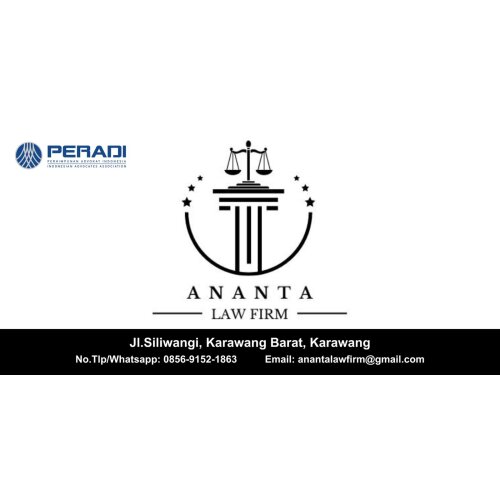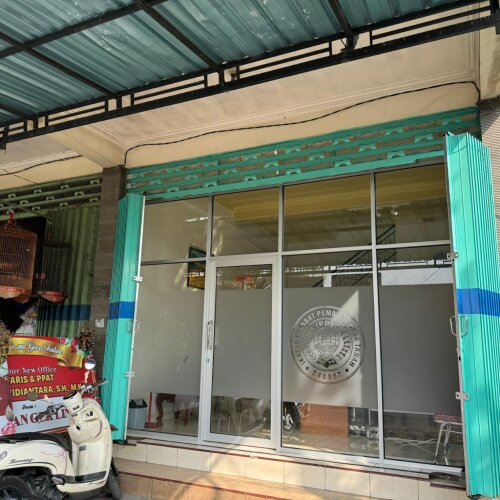Best Trusts Lawyers in Indonesia
Share your needs with us, get contacted by law firms.
Free. Takes 2 min.
Or refine your search by selecting a city:
List of the best lawyers in Indonesia

Jiwangga Law Office | Lawyer Surabaya | Advokat Surabaya | Pengacara Surabaya
30 minutes Free ConsultationAbout Trusts Law in Indonesia
In Indonesia, the concept of Trusts as understood in common law jurisdictions does not exist in the same form. However, Indonesian law does provide for legal instruments that can serve similar purposes, such as the fiduciary that deals with transferring ownership temporarily to secure a party's right. Trust arrangements are typically more complex and involve private agreements where parties rely on fiduciary principles. These arrangements are increasingly used in estate planning, business structures, and managing assets for beneficiaries.
Why You May Need a Lawyer
There are several scenarios where seeking legal advice in the field of Trusts is beneficial. Individuals often require assistance with estate planning, ensuring proper management and distribution of assets. Business owners may seek to safeguard business continuity through trust arrangements. Additionally, expatriates and foreign investors might need to navigate the cross-border complexities of asset management and distribution. Legal experts can also guide towards compliance with Indonesian law, resolving disputes, and fulfilling fiduciary duties.
Local Laws Overview
The Indonesian legal system is based on civil law and does not recognize Trusts as found in common law nations. Instead, property and business arrangements need to fit into existing Indonesian legal frameworks. Key statutes include the Indonesian Civil Code and Law No. 4 of 1996 on Mortgage over Land and Land-related Objects, which covers fiduciary transfer arrangements that can be structured to achieve similar objectives to Trusts. Furthermore, principles relating to inheritance under the Indonesian Civil Code may be relevant in the context of estate planning.
Frequently Asked Questions
1. What is a Trust and is it recognized in Indonesia?
In Indonesia, Trusts as understood in common law are not recognized. However, mechanisms achieving similar outcomes exist through contracts and fiduciary instruments.
2. Can a foreigner establish a Trust in Indonesia?
Foreigners may not establish a traditional Trust in Indonesia but can use private contracts and fiduciary transfers for asset management purposes, subject to compliance with local laws.
3. How can Trusts be beneficial in estate planning?
While not traditional Trusts, utilizing fiduciary arrangements helps ensure assets are managed and distributed according to the owner’s wishes, thus facilitating estate planning.
4. What are the tax implications of setting up a Trust-like structure?
Tax considerations depend on asset types, structures used, and residency status of the involved parties. Consulting with a tax advisor is recommended.
5. How does Indonesian law handle fiduciary duties?
Fiduciary duties are derived from the principles of good faith and fairness, critical in asset management arrangements, and require strict adherence to contractual obligations.
6. What are the potential legal risks in asset management using Trust-like arrangements?
Legal risks involve non-compliance with local laws, potential disputes among beneficiaries, and issues with asset protection, necessitating careful legal drafting and advice.
7. Are there frameworks for protecting beneficiaries under Indonesian law?
Indonesian law emphasizes honoring contractual obligations and fiduciary duties, which contribute to the protection of beneficiaries, but direct statutory protection like in Trusts may be less pronounced.
8. How can businesses use Trust-like structures in Indonesia?
Businesses might employ fiduciary arrangements for asset holding purposes, ensuring business continuity, and managing shared ownership, albeit with alternative legal structures than Trusts.
9. What is the process of establishing a fiduciary agreement?
Establishing a fiduciary arrangement involves drafting a legal contract that clearly states the terms of asset management. Legal advice is crucial to ensure compliance and enforceability.
10. Are there limitations on what assets can be included in such arrangements?
Certain assets, such as land, have specific legal requirements for ownership and transfer under Indonesian law, which may impact their inclusion in fiduciary arrangements.
Additional Resources
Individuals seeking more information may contact the Indonesian Ministry of Law and Human Rights or the Indonesian Financial Services Authority (OJK) for guidance. Legal and financial advisors in Indonesia can provide tailored advice and support in structuring asset management arrangements.
Next Steps
If you need legal assistance with Trust-like arrangements in Indonesia, consider consulting an attorney with expertise in Indonesian property, inheritance, and fiduciary law. Lawyers can provide guidance tailored to your specific situation, ensuring compliance with local regulations and helping to protect your interests effectively. Preparing a list of your specific needs and questions can help make the consultation more productive.
Lawzana helps you find the best lawyers and law firms in Indonesia through a curated and pre-screened list of qualified legal professionals. Our platform offers rankings and detailed profiles of attorneys and law firms, allowing you to compare based on practice areas, including Trusts, experience, and client feedback.
Each profile includes a description of the firm's areas of practice, client reviews, team members and partners, year of establishment, spoken languages, office locations, contact information, social media presence, and any published articles or resources. Most firms on our platform speak English and are experienced in both local and international legal matters.
Get a quote from top-rated law firms in Indonesia — quickly, securely, and without unnecessary hassle.
Disclaimer:
The information provided on this page is for general informational purposes only and does not constitute legal advice. While we strive to ensure the accuracy and relevance of the content, legal information may change over time, and interpretations of the law can vary. You should always consult with a qualified legal professional for advice specific to your situation.
We disclaim all liability for actions taken or not taken based on the content of this page. If you believe any information is incorrect or outdated, please contact us, and we will review and update it where appropriate.
Browse trusts law firms by city in Indonesia
Refine your search by selecting a city.















